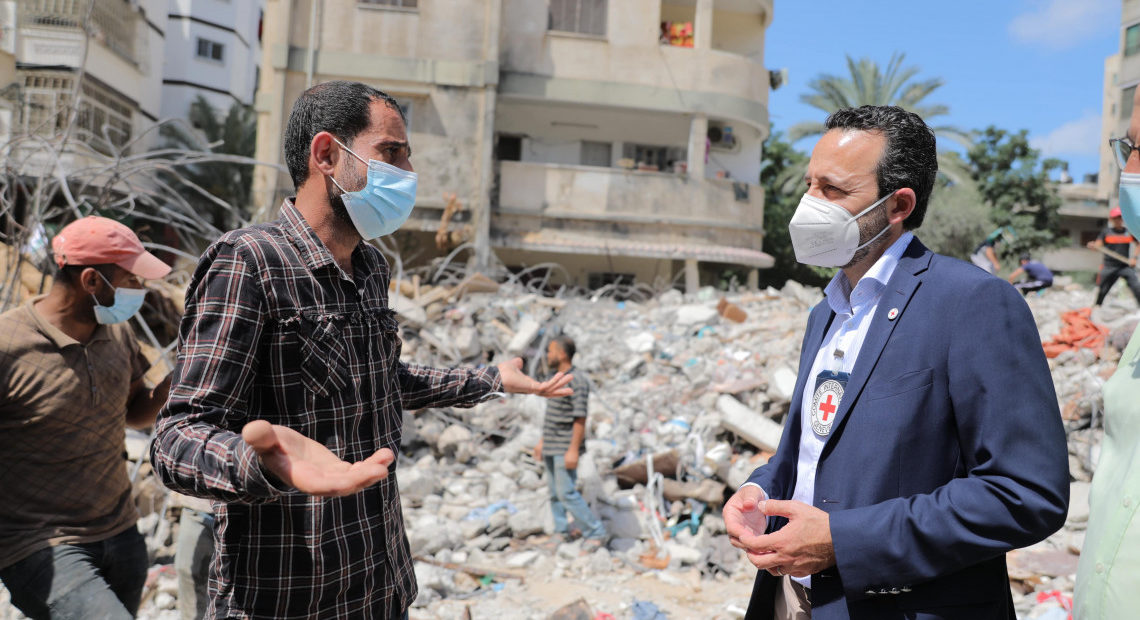I visited Gaza yesterday, and the south of Israel today. The trauma in this region grows after each new round of hostilities. People remain wary of what’s to come.
What people shared with me is a profound sense of fatigue, hopelessness and inability to see a better future for the region’s younger generations. The humanitarian aid that residents in Gaza need now cannot prevent a nearly inevitable return to nights filled with terror at some point in the near or distant future. That can only come with political solutions.
I have conveyed to both sides our offer to be a neutral intermediary should there be a negotiated exchange for detainees or human remains. Families have the right to know, to grieve and to move on with their lives.
People in Gaza have been deeply affected by the latest escalation. With every round of fighting, they are left worse off, with livelihoods and homes ruined once more. They are tired of the talk of “resilience.” It’s a word that simply covers the absence of options for people forced to repeatedly cope with what they they are left with.
Civilians in Israel have also paid a high price. In the south, staying close to shelters has become second nature for communities, as has extinguishing fires caused by arson balloons that damage farmland and livelihoods.
The psychological impact of the cycles of fear and destruction on both sides of the Gaza fence reverberates for years among children and adults alike.
Humanitarian aid, which is now preventing the collapse of some essential services in Gaza, is not a sustainable solution.
A whole generation of Gaza’s youth has grown up knowing nothing but closed borders and repeated series of hostilities. Those under 18 have lived through four military operations and countless escalations. They need a glimmer of hope, a future to look forward to.
In Jerusalem today, I faced similar questions: what is the future of Palestinian youth living under the longest military occupation in modern history?
It’s my strongly held view that international humanitarian law has to be brought back to the table to address the legal and humanitarian impacts of occupation policies on the Palestinian population. Respect of this law is not the panacea to end the occupation, but it helps preserve a path towards a negotiated solution. This conflict won’t be solved by reciting the Fourth Geneva Convention. But simply complying with one’s basic obligations would be a good start down what has become an increasingly long and agonizing road to peace.
The immediate focus of the International Committee of the Red Cross (ICRC) will be on addressing priority needs in Gaza, for which we are asking for an initial additional budget of 10 million Swiss francs ($11.1 million). Some examples of what our teams are doing right now:
An ICRC surgical team recently arrived, and one of our priorities is to bring in extra medical supplies to support an already-fragile health system under immense strain, which is also simultaneously coping with the spread of COVID-19.
ICRC teams are assisting families who have lost homes and access to water and electricity. We are also focused on long-term needs like rebuilding infrastructure and crucial mental health support.
We are already supporting repairs of larger systems: the water and wastewater systems and power network — and we want to increase that assistance.
We will also continue to support our partners from Magen David Adom in Israel and the Palestine Red Crescent Society.



Comments